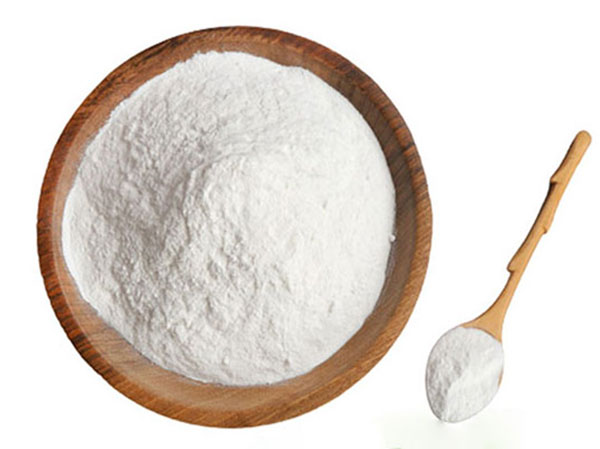- Product Name: L-Aspartic Acid
- Appearance: White Powder
- CAS NO.: 56-84-8
- MF: C4H7NO4
- Molecular Weight: 133.10
What Is L Aspartic Acid
Phychemical Properties
- It is white crystal or crystalline powder in appearance.
- Odorless, slightly sour taste.
- Soluble in boiling water, slightly soluble in water at 25℃, easily soluble in dilute acid and sodium hydroxide solution, insoluble in ethanol, ether.
- It is decomposed when heated to 270℃.
- The isoelectric point is 2.77, and its specific rotation is related to the dissolved solvent. It is dextrorotatoryin acid solution, levorotatory in alkaline solution, and dextrorotatory in aqueous solution.
What is l aspartic acid used for
L Aspartic acid is widely used in medicine, food and chemical industry.
- In medicine, it is the main component of amino acid preparations and the raw material for the synthesis of L-aspartate potassium, magnesium, calcium and asparagine.
- As an electrolyte replenishment drug, it is used for amino acid infusion, potassium, calcium and other inorganic ion supplements, fatigue recovery agents, etc.
- It can be used as ammonia antidote, liver function enhancer medicine. Potassium magnesium aspartate injection or oral solution can be used for arrhythmia and premature beats, tachycardia, hypokalemia, hypomagnesemia, heart failure, myocardial infarction, angina pectoris, hepatitis, cirrhosis caused by cardiac glycoside poisoning disease. It is of low toxicity and cannot be injected without dilution. It should be used with caution in patients with renal insufficiency and atrioventricular block.
- It can be used as biochemical reagent, culture medium and organic synthesis intermediate.
- L-aspartic acid is often used as a chiral substrate for diastereoalkylation reactions, and can be used as a chiral source to synthesize other chiral compounds.
- It can be used as a carrier of K+ and Mg2+ ions to deliver electrolytes to the myocardium, thereby improving myocardial contractility and reducing oxygen consumption.
- It participates in the ornithine cycle, promotes ammonia and carbon dioxide to generate urea, reduces the amount of ammonia and carbon dioxide in the blood, enhances liver function, as well aseliminates fatigue.
- Production of energy and glucose. Aspartic acid is very important and plays a key role in the generation of cellular activity. It is responsible for transporting NADH molecules to the mitochondria, which are then used to generate ATP. This coenzyme boosts metabolism and supports other cellular activities. Therefore, we can understand that the higher the NADH in the cell, the higher the ATP produced. As this improves metabolism better, it also converts into energy for our body.
- Improve memory and cognition. L-Aspartate is important for cognitive function because it is responsible for transporting NADH to the brain. This element helps the brain maintain correct levels of specific chemicals and certain neurotransmitters. This is critical to effective mental function.
- L-Aspartate is responsible for the synthesis of luteinizing hormone, which produces testosterone in men.L-aspartate also regulates the menstrual cycle and supports ovulation in women. This acid also boosts and releases growth hormone. It even helps the pituitary gland to secrete prolactin, which enables lactation.
In the food industry, L-aspartic acid is a good nutritional supplement, added to various cool drinks, and is the main raw material for the production of sugar substitute aspartame.
In the chemical industry, L-aspartic acid can be used as a raw material for the manufacture of synthetic resins. It can also be used as a nutritional additive for cosmetics.
Other Uses
- L-aspartate can be alkylated at the α- and β-positions. During the course of β-alkylation reactions, the amino acid moiety has an important influence on the diastereoselectivity of the reaction. At the same time, β-dicarbonyl compounds can also be prepared by β-alkylation of cyclic derivatives of L-aspartic acid.
- Using L-aspartic acid as a chiral source, a series of chiral compounds can be synthesized.
- As an amino acid, L-aspartic acid can also generate amide compounds like other amino acids
- With L-aspartic acid as the precursor, the synthesis of cyclic lactams can be realized, such as the synthesis of six-membered cyclic lactams.
How Is L Aspartic Acid Powder Prepared
The preparation methods of L-aspartic acid powder include synthetic method and fermentation method.
The synthesis method is mainly based on maleic acid, fumaric acid or their esters, treated with ammonia under pressure, and then hydrolyzed. It is easier to synthesize racemic aspartic acid, but so far there is no ideal method for splitting the racemate.
In the fermentation method, under the action of enzymes, adding fumaric acid to ammonia can obtain product in high yield. This method only generates L-isomer with high yield, so it is the main method for industrial production.
Buy L Aspartic Acid Powder from Megaman
Competitive price. With our own factory, we can give the ex-factory price to customers directly.
Fast delivery. Our production line can ensure sufficient supply and we have a large warehouse to store spot goods.
Excellent service. The customer service personnel are 24 hours online to ensure that we can provide customers with the highest quality pre-sales and after-sales services.
